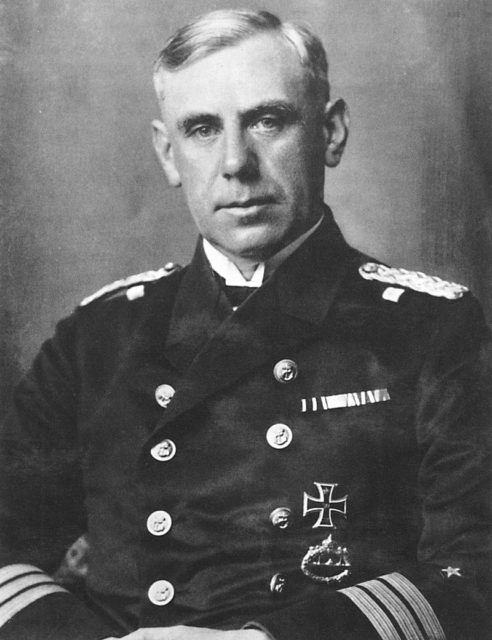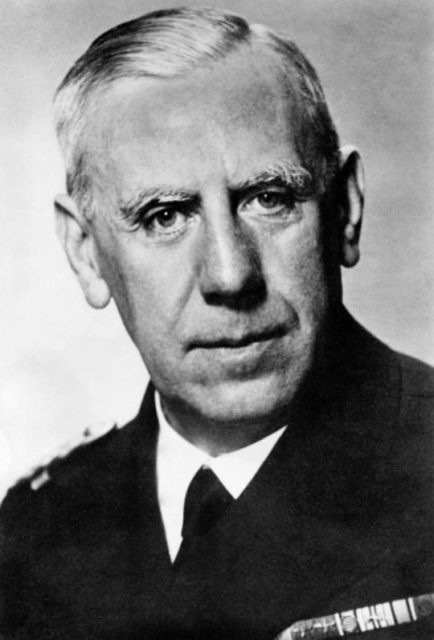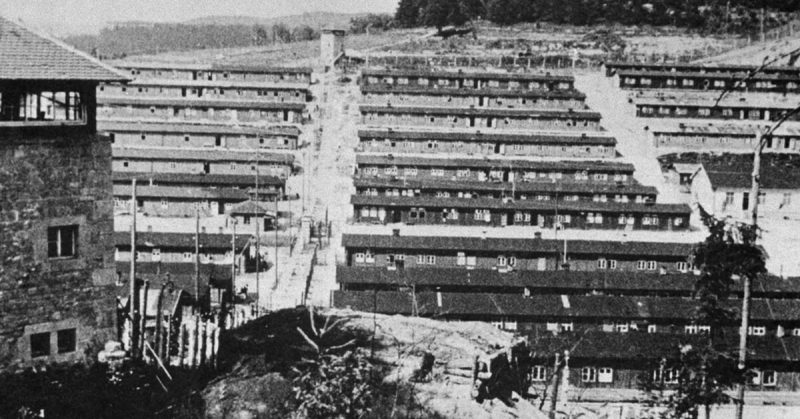Wilhelm Franz Canaris was a German military man and also a member of the German intelligence agency. Originally supporting Hitler, he later became a Nazi dissenter, participating in an established opposition against the party. For his treasonous actions, he would eventually be executed in a concentration camp.
The Beginnings
Canaris was born into a wealthy family which he believed had historical ties to the military, prompting him to join the Imperial German Navy at a young age. These ties he later discovered were untrue.
In his mid-20s, Canaris was serving in World War I as an intelligence officer, on a cruiser. He proved his worth, as his ship was the only one to evade the British Royal Navy for some time during the Battle of the Falkland Islands.
When his ship did finally succumb, he and the rest of the crew fled to Chile, where Canaris used his impressive Spanish-speaking skills to get back home to Germany.
His talents did not go unnoticed. Canaris was appointed to the German intelligence agency, where he was tasked with establishing intelligence operations throughout the Mediterranean.
He moved to Madrid, where he provided information on enemy shipping, before becoming a U-boat commander. At the end of the WWI, he was awarded the Iron Cross First Class.
In the years between the wars Canaris continued his work. He organized military units to suppress communist sentiments and served on a military court.

In 1924 he went to Japan where he oversaw U-boat construction that was directly in violation of the Treaty of Versailles. Later, Canaris was captain of a naval cruiser, where he was known for giving lectures on Nazism, around the time Hitler came to power.
It was no secret that Canaris was a Nazi supporter from the start. He supported an authoritative government and hated the Versailles Treaty. He wanted Hitler to create a super-fleet of naval ships so Germany could become a world power once again. He also liked the Nazi’s view on communism.
Canaris was coming to the end of his career. He was surprised, therefore, to be appointed as the Head of the Abwehr, the name for the German Intelligence Agency.
One of his first acts was assisting with the Austrian annexation by overseeing deception operations designed to force the Austrian Chancellor’s hand. Then, he absorbed the Austrian intelligence agency into his own.
When he heard of plans to annex Czechoslovakia as well, Canaris began feeling uneasy. He was worried Hitler might start a second World War, and so a group slowly formed with the aim of doing whatever they could to prevent it.

Rebellion and Deception
Canaris and his friends may not have wanted to overthrow the Nazi regime, but they did have connections to smaller factions that did. At one time Canaris considered a plan to capture and depose Hitler and the Nazis before they could invade Czechoslovakia. The group decided to wait to see if the British declared war on Germany, surmising that would give them the perfect opportunity to stage a coup.
However, Great Britain and France were busy signing the Munich Agreement with Hitler. That gave the German leader a boost in popularity, although Canaris was disappointed. He was glad war had been diverted, though, and began to change his views, gravitating toward Hitler once again.
Canaris orchestrated the Dutch War Scare, which sent false information to Britain saying Germany planned to invade the Netherlands. They would then use the country as a base for attacking Britain. While the information was fake, it was effective in putting the British on their guard.
World War II
The War finally did start with Germany invading Poland. Canaris paid a visit to the front lines, where he was reportedly emotionally overwhelmed with fear for future generations. He also witnessed the egregious war crimes committed in Poland.
Canaris went to Hitler’s headquarters to express his concerns over what was happening. He was warned not to protest, as the orders for all of the atrocious actions came directly from Hitler himself.
Canaris was now prompted to revisit his previous wishes to overthrow the Nazi regime. For some time, he was able to pose as a trusted official. He was successful in his work and received promotions. However, he could not help but file a complaint when he received a report on the poor treatment the Soviet prisoners of war were receiving.
Canaris was told he was too chivalrous, and the Nazis were attempting to destroy a world ideology. His seniors thought him squeamish and possibly unreliable. During this time, it is suspected Canaris had frequent contact with British intelligence agents. He also began doing what he could to save victims, including Jews, from persecution.
Failure
As Canaris drew suspicion from his colleagues, Hitler dismissed him from his role and put him under house arrest. He was later released and put to work as the Head of the Special Staff for Mercantile Warfare and Economic Combat Measures.
Individuals in his circle were under investigation during this time. Several shot themselves, causing the Gestapo to believe they and everyone else in the group were guilty.
Canaris was scrutinized further, and his personal diary seized, proving his involvement in various plots to overthrow Hitler. He was convicted of treason and sentenced to death.

Canaris’ death was a humiliating affair. He was taken to Flossenburg concentration camp, where he was said to have tapped out a coded message to his fellow prisoners, saying he was innocent and was doing his duty to his country.
He was stripped of his clothes and then strangled with a violin string for 30 minutes before he finally died.
